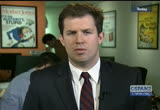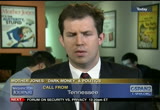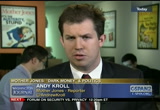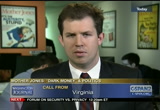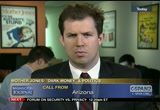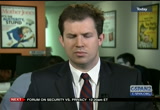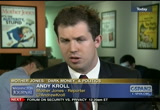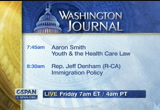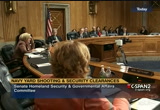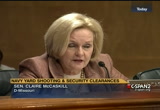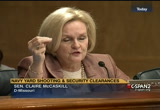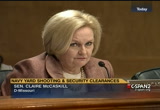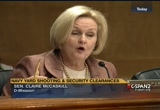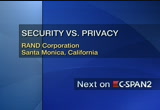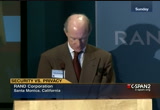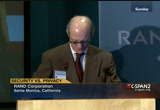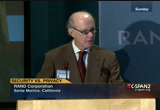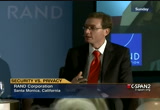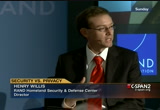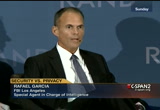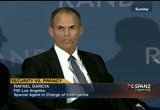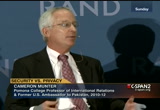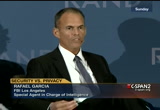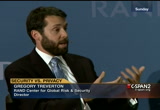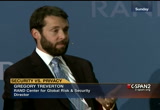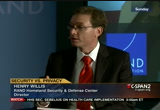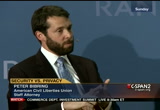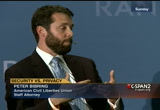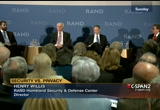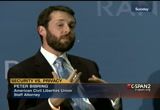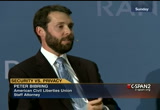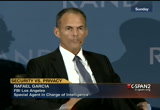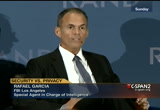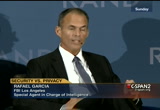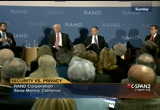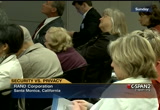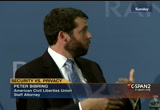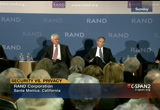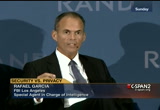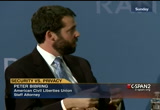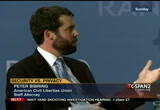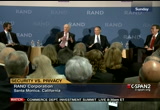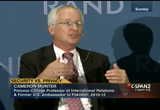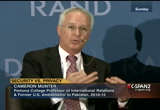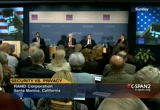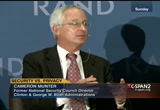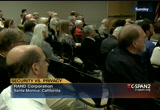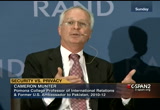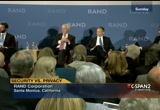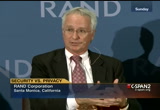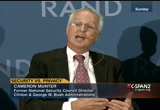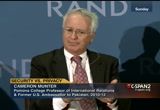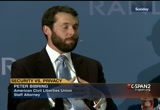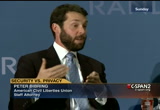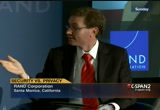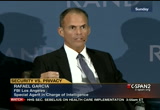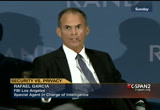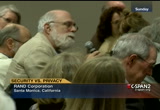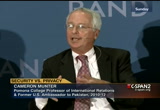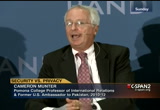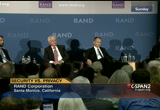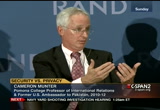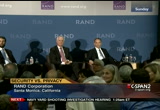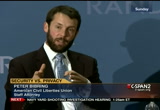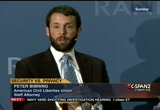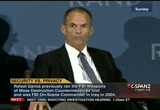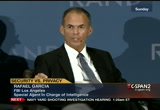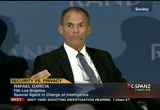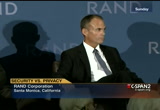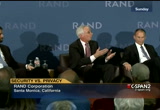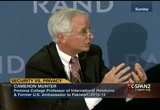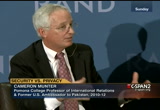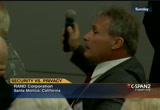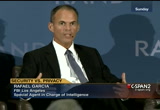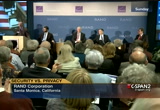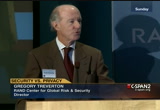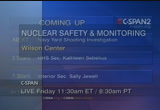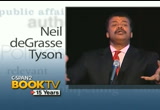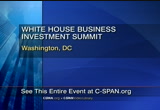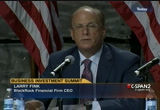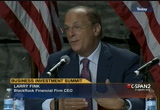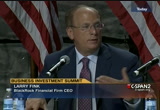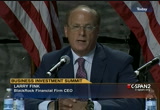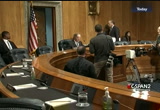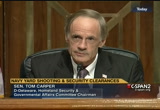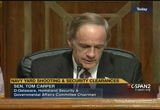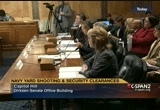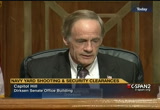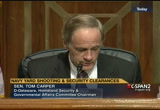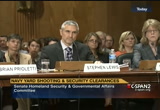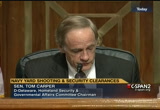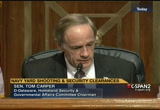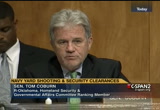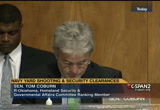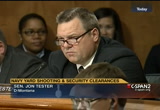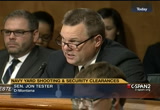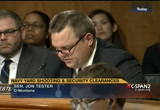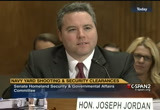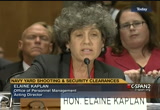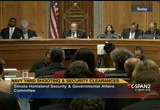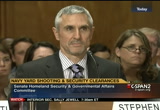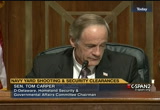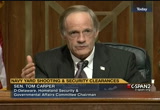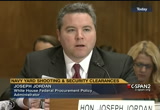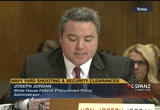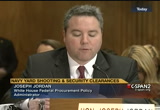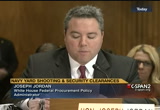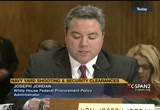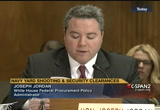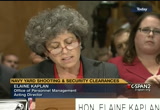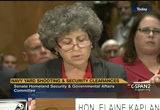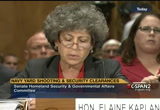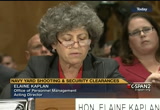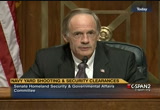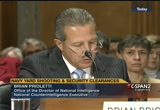tv Key Capitol Hill Hearings CSPAN November 1, 2013 12:00am-2:01am EDT
12:00 am
greed. greed in the country to buy people, by the country up, and then they run the country like they want to. kroll, i think aj was referring back to the citizens united case. if you could talk a little bit about the continued impact of that case. guest: absolutely. at in partnited was c's, that unleashed this torrent of arc money into our elections. citizens united is an interesting case to study. chief justice roberts, his highlight on the court. a lot of court experts wrote of him being on a sort of progression of slowly dismantling the campaign-finance laws, the foundation of those laws we got in the 1970's.
12:01 am
citizens united is by far the biggest there. upcoming case will be another one, the listing rules for aris. and potentially some court watchers believe, he could not down the benefits given to candidates and parties themselves. so, the citizens united is the most high-profile decision on this issue, but very much in a string of cases and we do not know how this is going to and yet either. marianne from tennessee on our line for independents. good morning. caller: good morning. i have a question about dark money. when the representatives who are supposed to be representing us shut down the government over obamacare, the stock market went down. resumed, iternment
12:02 am
went up the same day. since these representatives get a heads up on the market movements, how many of them made money, who were they, and how much? host: andy kroll. guest: that is a good question. that gives back to what the previous color said about the stock act. there is absolutely the for them to act on information they have acquired about the stock market and the way the government moves markets in ways the average public can't. the way that members of congress financialheir holdings, we do not know who profited off the market dipped and its increase when government got back in working business again, but it will be interesting when those disclosures come out to see if that. made a few bucks on this is what the stock act was
12:03 am
intended to fix. it sort of took a small bite at the issue. but the folks behind the stock act say it has not gone far enough yet and they continue to tighten up those reforms so we do not have people profiting off that information. --t: joseph on twitter asks is equating money with free speech giving those with it more free-speech them those without? those whore are believe that we should have healthy, strong restrictions on money in politics. if you are a las vegas casino magnate or a hedge fund guru and money is free-speech, well, you have the ability to put out a lot more speech than the average person making worried thousand dollars, $50,000 a year. side probablyve disagrees and says any restriction is a restriction on free speech rights and this is the fundamental tension in this issue. it is interesting and at times
12:04 am
difficult to write about. i can definitely see that argument. the average person cannot start play inpac and hope to a house race or a senate race, certainly not a presidential race. but someone with $10 million to spare can. and the makes a difference in elections. host: stephen from woodbridge, virginia on our line for independents. good morning. caller: hi. i'm glad i got through. i have to agree with the lady who just called about influencing the stock market. i think the republicans and democrats, they are wings of the same bird, the right and wing -- the right and the left-wing of the same bird with the head of the bird being what ever president it is. i feel this is all a charade, the dysfunctionality between the the charade of
12:05 am
opening and closing the government, closing the government, and then opening it at the 11th hour, knowing full well, you know, that these actions influence directly the stock market and stock prices. and profit from this tremendously. think, you know, it is way a charade and away -- a to make money. host: ok, we will go to jack from prescott, arizona on our line for democrats. jack? caller: i would like to make a comment. it is one thing to make people aware of how speech is money or money is speech. i purposely went out and tried to pay my cable bill, my electric oil, and the grocery store and to make those people
12:06 am
aware, i asked how long i would have to speak to pay my bill. and guess what? all of them wanted money. money is not speech. money.s just too much it is the corporations controlling our congress. and the best way that people won't do it, if we would all vote for the guy that had less money to run his campaign. that would give them something to think about. but i appreciate c-span and "mother jones." keep it up. host: andy kroll, that brings up issue. you have studied the campaign finance system. how do you think you could reformat to do it well? differenceing at the
12:07 am
reforms right now, putting hard restrictions on how much a candidate can accept or give, a party can spend and so on and these other types of restrictions are doomed from the start because you have a conservative supreme court that does not believe they should exist, that does not believe the are constitutional. and reforms that have intrigued me the most are what is called public finance elections or citizen led elections. this is a system that instead of capping or talking about restrictions, it rewards candidates for raising lots of small donations, and basically takes public money and matches donations of two a couple hundred bucks, something like that. build lazo, a democratic candidate in new york, it used this masterfully in the credit primary. he ran around and raised a lot of money in small batches from a lot of different people.
12:08 am
he won their support. that money was matched. that does not seem to raise the same kind of constitutional questions. you are not talking about restrictions. you are talking about rewarding over four supporting as many small donors as you can. that seems to be the best chance of taking some kind of step forward, tamping down this aid money political system we have right now. one more caller. we will go to jolt from lynchburg, virginia on our line for republicans. good morning. caller: good morning. host: good morning, go ahead. caller: first to comment and then a question. the comment is, as long as we keep getting the same people back in there, the dark money will always be there. i mean, the only way you can ever change that is to get people in their that have integrity -- to get people in there that have integrity and
12:09 am
will not take money. take antion is, did you article on president obama's first election, about john mccain wanted to have the private financing or public financing, and mr. obama ended up not doing its. and i don't think anybody ever found out where his money came from. host: andy kroll? where hisdo know money came from, because in terms of the money he raised or his campaign, it was a record- setting amount. some 700 $15 million in cash hundred $15 million in 2008. we know that the bundlers were also named by the campaign. but the caller is absolutely right. president obama said he would use public financing. he opted out. john mccain longtime advocate of
12:10 am
finance reform made an issue around that. that is something we covered in 2012. how much president obama relied on big donors. looking postelection how organizing for action, the rebooted version of the campaign by offeringnors them access to the president. money in politics should apply to president obama without a doubt. we have continued to look at it along the way and will continue to do so and in 2016, we will look at those candidates. hillary clinton, of course, as well. kroll'su can see andy latest piece on "mother jones." behind campbell brown's
12:11 am
on the next washington garble aaron smith, cofounder and executive directer on why his group is encouraging young adults to sign up for health care. and congressman jeff talking about immigration reform and why he'll join democrats in cosponsoring a plan that give mlts of unauthorized immigrants to obtain citizenship. plus your e-mails, calls, and tweets. live at 7:00 a.m. eastern on c-span. friday a look at the role of
12:12 am
the international atomic energy agency with iaea chief speaking at the event host bid the wilson center. live coverage at 11: 30 a.m. eastern on c-span. this painting was originally painted as my grandmother's official white house portrait. in the 1960s, lady bird johnson went looking for portraits of first ladies to hang to rehang in the white house. she thought that was important. and she looked high and low and couldn't find my grandma's official portrait and called my grandmother. he said do you know where the painting is? my grandma said, yeah, it's on my wall. mrs. johnson said, said you shouldn't have that it belongs in the white house. my grandmother said no. it's on my painting. it's on my wall it's going
12:13 am
stay. i think she tried a couple of times. watch our program on our first lady bess truman. see it saturday on c-span at 7:00 p.m. eastern and we continue the series live monday as we look at first lady eisenhower. during the senate homeland security committee hearing on the washington, d.c., navy yard shooting on thursday, senator claire mccaskill said we are clueless about whether people should have clearances. you can see the remarks at c-span.org. here is a look. >> an arrest report may be part of a background check.est report there's not an requirement that the underlying police report bee obtained. is i'll -- tell you why it's a shocking revelation. like senator ayotte, i'm a t
12:14 am
former presidenter -- prosecutor. and the vast r majority of cases joat reveal a mental disturbanca won't have a dispositions. the criminal justice system does a very bad job of adjudicatingth es amentally ill. because the mentally ill really -- from a prosecutor's standpoint, hurt anyen't heard -- hurt anyone.y've e whersomeone said there's microwaves coming through the ml throe and someone is people are here to get me. they'll do a police report, mose of the time the policeme, th popartment won't even try toice file charge. a that is a disturbance call that
12:15 am
is related to someone that is in their mind do this all the time is related to someone in their minds, they do this all the time. now, that is not something that -- especially in a city as large as seattle or a city as large as kansas city or a city as large as st. louis, that kind of disturbance call, where someone is making a racket because they are mentally disturbed, most police departments won't even take it to the prosecutor for a disposition. in fact, we are horrific in this country with even getting that person the mental health services. and the vast majority of these shootings are not going to be around the issue of whether or not someone has shown violent tendencies but whether or not they've shown tendencies of having a mental issue. so the notion that we are saying, well, if a police department won't give us a report, we've checked the box.
12:16 am
and i think if we do a gut check on this issue, we will realize that a lot of the work we have been doing around this is checking boxes. now, i get it, that we can't go out and do one-on-one and pull every thread on every application for clearance. although if we did that, we would probably make them so expensive we would be much more disciplined about deciding who gets them. but the notion that you're calling what you're doing quality control, ms. kaplan, is probably i think offensive, because i think there's just a lot of checking boxes going on. was this report obtained? yes. was this report obtained? what i don't -- where i don't have confidence is there's even on a random basis a more thorough examination. and i think that's something -- and i'm glad to hear you have a
12:17 am
working group. what i'd like to see us do as a committee is ask for some specific recommendations on who is getting clearances and are they all necessary and all of this is risky. i mean, we can say we are doing too many and then we can have a bad thing happen and then we'd be back saying, why didn't they have a security clearance? on the other hand, what we're doing now is the worst of all situations because we're giving the impression in a all these millions of people who have -- that all these millions of people who have security clearances, we've checked them out. we're confident that they're mentally stable, they're not criminals and they obey the law. we have no idea if that's true. we are clueless as to whether or not that's true. because this process has become in a way a pro forma kind of process with contractors, and the reason the contractors were off the reservation is because they bid an amount and that
12:18 am
contractor wanted to make money so that was time to cut corners. you wanted to make your number, you wanted to make money, you just turned it in, you just pretended like you did. so i agree with the chair and the ranking member that this is time for all of us to really, you know, quit nibbling around the edges on this thing and let's get to the meat of the matter. saying that seattle doesn't ve a police report, that dog doesn't hunt in this context. that just doesn't work. and mr. lewis, i have a specific question for you. my subcommittee has learned that we have a bunch of felons on navy installations. we have learned that a discussion on privacy versus security. an fbi special agent in charge of intelligence of former u.s. ambassador to pakistan, and a senior of aclu attorney took
12:19 am
part at event hosted by the rand corporation in california. this is just over an hour. >> now, let me introduce the speakers. i won't tell -- you have to figure out who they are. they are not seated yet. it's a great topic and a great panel. henry willis is one of the young stars of the organization will moderate. he's both a senior analyst and professor at the party rand graduate school. that's him on the far end. he's an e pert on risk analysis. a risk analysis decision technique caused a wide range of issue and most recently testified before congress applying it to homeland security issues. next is rafael george garcia. the special agency in charge of the intelligence division in los
12:20 am
angeles. mr. bill lewis was unable to participate. and we are glad that george can representative the fbi tonight. he worked in various capacity with the fbi since 1995. focusing on intelligence, counterterrorism, and wmentd wmd. his work has taken him, obviously, to what we call fort hoover in washington, the fbi headquarter and also the fbi's deputy on scene commander in iraq. he was an army very, before that. next to him is ambassador cameron mitchell -- sorry. cameron mitchell is somebody else. >> it's to the the first time. >> i apologize. he's retired career diplomat now and professor of international relations. he was ambassador to pakistan from 2010 to 2012. we will have many hair-raising stories about that relationship
12:21 am
in a period when u.s.-pakistani relations were, shall we say, not easy including the capture and killing of bin bin laden. before that he had an aassignment in baghdad -- [laughter] he had responsibility for overseeing the planning for the draw down of u.s. troops. before that ambassador to syria, deputy chief in czech republic and poland and served on the national security council. last but not least, right here is peter. the senior staff attorney at the aclu southern california office. there he has the distinction of having one important cases against the lapd over searching people on skid row, and against the city of her reno valley which was raiding african-american barbershops
12:22 am
without a warrant. sorry. he's been a law clerk on u.s. circuit court, and has had a distinguished career outside and inside the aclu. please join me in welcoming the distinguished panel. [applause] henry, over to you. >> thank you, greg. we are here tonight to talk about security and privacy. and the event this year have put these two issues in to the front of our policy. in april, the bombing of the bonaminio grabbed our nation's attention. they reminded us that terrorism is still an external threat seemingly could happen anywhere. about a month later, edward snowden began releasing real elevations about massive surveillance.
12:23 am
in this kicked off a healthy public debate about how we balance privacy and security. and as you've heard from greg, it's our mission to try to improve the quality of public policy decision making which is an important discussion to be had. that's why we brought together the panel. people have different views. while everyone here has deep expertise in experience with part of it. we're hoping to have ab open discussion about it. in will be some thing they'll be unable to question. unable to an and just because of the situation. but we're going try to guide the discussion over a few topics today. we're going to start can with try to understand what works in intelligence and security. why do we feel we need to put it in place. we're going turn to what are the increased risk of mass collection of information on the public. and finally, turn to what is the
12:24 am
-- what do the implications of this an how we implement foreign policy. with that sort of an overarching on the topic i like to see us cover. i'm going it start with the first question on the threat we face and why we need -- feel we need security. if there are no benefits with e wouldn't have be having the discussion. with that, george, i would like to turn to you. how has the threat of terrorism changed over the past decade and how have our security and -- it's changed, henry, i think a few relatively significant ways. first, it is a threat than it was ten to fifteen years ago. it's not necessarily aligned bay group by ideology and other driving factors which may be complaint about how we are conducting ourselves in their
12:25 am
view. secondly, the threat seems to progress at time very rapidly. what may appear to be a localized threat today perhaps in some obscure part of the world could in fact be on the doorstep tomorrow. lastly, it has significantly. they don't necessarily appear based on their actions and recent actions are indicators of that. that necessarily big and complex attacks are necessarily their goal or their aim. at least in their view. to attempt to accomplish their objectives. still relatively small in comparison attacks that are relatively simple to put together. and execute seem to be a preference. and of course, they have the same tools we all have to communicate in a worldwide capacity through the internet and other social media which makes not only communicating plan and intentions relatively
12:26 am
easy. but also to gain support that perhaps even material. so these are some of the challenges we think are responding to. what are we doing -- cameron? >> also on ab element i think george mentioned, but would emphasize from the point of view someone spent most of the recent years, in fact the last ten years, this is not americans can or will seek to serve to deal with on their own. this is going take some sort of cooperation with formers those friendly us and understanding of the foreign elements who are not friendly to us. the understanding of intelligence in the sense of having a deeper understanding what can be done is not just an american task. and i think we make a big mistake if we see it as only ours. >> from responding to that, what type of steps is it important
12:27 am
for us to be able to take. george? >> i think certainly from my organization's perspective, we have to -- on a daily basis show due dill diligence we don't dismiss even what we have made on the surface be the smallest allegations. but to do it within the conduct provided to us through the congress and laws and stemming from the institution fop insure while we are doing the due diligence in our work, to make sure we leave no stone unturned. we do it in balance with the responsibility we have as an organization to protect the civil liberty of americans as well as the private. in fact, that constraining aspect of our work is present every day. even with the authority vested in statute, even with the predicateed investigate that has has are -- we still must balance that with the responsibility to obtain civil liberty and privacy. so we simply can't do everything
12:28 am
that may be available to us and so we can demonstrate the lesser entry of method have been infective so every day men and women of the fbi, agents and other work roles work toward accomplishing that mission of recognizing they have that responsibility to balance it against keeping and maintaining civil liberty and prief along the way. >> let me jump in here. maybe jumping the gun a bit. but free an outsider's perspective looking at the law enforcement practice. not only program law enforcement, but the local law enforcement like lapd. what it appears to us is a civil liberty group is that law enforcement shifted domestic law enforcement from what i call a traditional law enforcement model of finding bad guys, investigating them, seeing if you can find their friends and investigate them some more of an intelligence gathering model.
12:29 am
where there are programs put in place to gather lots and lot of information to collect dots and to collect information and collect dots might appear innocuous but the idea when put together might reveal a crime. so that's whether that's the nsa program on gathering meta data or look at internet traffic or suspicious -- or local police department which train officers to identify even at times lawful activity like public photography and forward that to a national data base. there's been a shift to collecting lots and lot of data. there's a question whether it's an effective model. you look at, for example, william webster's committee report on the fort hood shooting. one of the conclusions is that the intelligence be the analysts there missed intelligence about
12:30 am
hasan in part because of a relentless workload. there's a question about, i mean, in proashial terms whether it's adding more hay to the hay stack and an effective way to police. >> so -- >> thank you for bridging up those point. you also highlighted that law enforcement has a couple of roleses. they have the role of investigating crimes. in today's threat environment some expectations of preventing attacks as well. and george, you mentioned there's a cognizant effort to try to do it within the realm of protecting civil liberty. there's a history of cases where some of those have been abused and so checks are put in place. i would like that ask you, your perspective on where those checks are effective or where you might have some concerns.
12:31 am
sure. i mean, there are a lot of checks nut place and obviously some less effective than others. i think with the nsa programs we're seeing a lot of checks that are proven ineffective. traditionally, there's the -- a warrant requirement set up no warrant shall issue but on probably cause. a requirement of individualized suspicious before private information is gathered. and the shift to a more universal collection mechanism requires the bypassing. so whether that's through the bulk warrant that issue through fisa courts or through programs that gather large amount of data outside any kind of warnlt. -- warrant. but that model seems to be an
12:32 am
ineffective way of overseeing response first of all, i think the things that make it ineffective both the congressional oversight and the fisa court oversight are the secrecy, i think, that one of the things that is stunning about the revelations and about the scope of the programs is how far they've gone without any public discussion. but also in the context of the fisa court. we have seen fisa judges basically saying, you know, we're not the most effective check on this. we can't tell, we can't evaluate the voracity of the information being presented to us in one-sided situation -- in a one-sided proceeding where there's no adversary. we can't supervisor what is being done with our orders. what is being acted on because we're just a court.
12:33 am
so i think the secrecy and the -- is a huge problem. it needs to be addressed. >> i think that brings to the next part of this discussion. we've heard about the threat. we've heard about some things we think we need to do to respond to that. sometimes i get asked a question, are we safer for what we do? and in many ways that's somewhat of a wrong question. the question we've posed back is what have we gained in firm of safety and what have we lost? and so i turn back to peter to start. what are, in your view, some of the risk of mass surveillance. right. i think it's difficult to articulate the value of privacy. i think there's certainly a
12:34 am
example of people who think if i'm not doing anything wrong what does it matter if my action are being watched? i think there are a few answers to that. the first is that most people are doing something wrong. -- [laughter] it may be not what they think. but whether it's rubbing red lights, sloppy preparation on tax returns. [laughter] people do things wrong. then the second thing is that government doesn't always target bad guys for who they think are bad guys for exactly the reasons that you might think; right. al cay -- capone. we do a lot of representation of people interviewed by the fbi. we have some reason to think for national security reasons. a lot of times we see what seems to us, at least, to be --
12:35 am
pretext yule. an investigation that has a national security agent on it results in an immigration charge or deportation proceeding or even some charge related to practice of business. the idea if somebody gets in their head the idea you're doing something wrong that can create a real problem. with secret information. or, you know, abuses throughout history. richard nixon or fhfa los angeles there was a public disorder intelligence which compiled a lot of information and used it for political purposes.
12:36 am
it's often information that is collected for law enforcement and security purpose often used on political groups. >> if i can just provide some perspective. >> the fbi operates for mandates codified in statute laws written by our congress. it's not by -- signed by presidents in to law. that process is produced properly oversight not just within the executive branch of government itself, and the department of justice obviously within the fbi as well, but also with the congress and legislative branch, of course, to the court system in the judicial branch. it's done deliberately to make sure that day in and day out the wrong we are doing does two very
12:37 am
important things. make use of the laws that have been pass bid the congress that are there representing the people of the united states as dually elected officials. in their estimation it's required that the point in time. they have an expectations we use those tools. they have an equal expectations as does the fbi that balance the use of the tool with a consideration and in our first value as organization, rigorous obedience to the constitution we balance the tool in a predicated information for which we are allowed to use too lates. with the requirement to protect civil liberty and privacy. just because we have the authority by law to use certain technique, we have a responsibility, frankly, a requirement to do so in a matter least intrusive whenever possible. sometimes even in interview is too intrusive. what i mean by that?
12:38 am
if we think perhaps so you been involved in wrongdoing because we received information and we can corroborate agency pebt of it and authorized to open an investigation. white the interview itself is considered relatively less intrusive investigative technique by doing in the workplace we have intruded on your privacy. and keeping that knowledge and understanding of we may have interest in even by our physical presence might cause people to have concerns, which they shouldn't have. we take care not only to measure the actual technique used but in a matter used before we do it. and that oversight is provided within the organization by the leadership as well as the individuals responsible for conducting the investigations. then through deliberate mechanism both within the organization and outside. it happens as a matter of
12:39 am
practice every day. i think it highlights a cup of the lead to some of the consequences that people talk about. because of this there might be intimmization and first amendment -- or possibility of unwarranted search. peter, maybe, can you expand on the way people have tried to frame up whether or not these are more constitutional concerns at risk. right. but, i mean, that is certainly a concern. and, you know, we have seen that; right. it goes back to the point i was making earlier about secure vai lens often being targeted against political group whether it's a surveillance as martin luther king in the '60s by the fbi or the revelations within the last week or two that the fbi placed the own undercover
12:40 am
agents in the occupy sandy relief efforts. and that, i think, has a real foacial chill people's activity. people who may want to go out and participate in occupy sandy and relief effort or the original occupy movement may be chilled from doing so if they think that their participation will be noted and it may have repurr cushion down the road. in some way it's a good audience to convey the point. there a lot of young people who might want jobs at rand or made in political movement if they want security clierns down the line. i think that's a profound problem. to go back to the oversight. there's a legal issue by the in surveillance problem because a doctrine of standing.
12:41 am
whichly not bore you with in great detail. just to say there's a doctrine that said you can't challenge a program unless you can prove you have been harmed by it and your own subjective reaction to the program is not enough. so you to prove you have been targeted by it. well, nobody can prove they have been targeted by secret surveillance programs. so lawsuits, the aclu has brought the challenge the various warrant wiretapping programs have failed they have been thrown out by the supreme court and lower courts. aalthough the program exists we understand you journalist, you may be chilled with speaking from sources in the middle east because so you a reasonable belief you're being monitored, you can't prove you're actually being monitored. we're not going to provide and take the case. that takes the court out of the oversight picture, which is a problem. one reaction to some of that is
12:42 am
some of the concerns you discussed about maybe people being affected by not choosing to do anything. isn't that already happening? you hear of news report, the news stories about employers looking at facebook sites. i wrote an e-mail on g-mail the other day and based on what i wrote it asked me whether i wanted to put something in my calendar. it was already looking at the content of my language. with changes in technology, what is the fuss about? this is sort of an open question if anyone would like to respond. [laughter] all right. i think it's first these types of dialogue are important. ultimate the discussions are the things that at least in part our elected officials consider when they decide to make adjustments if our laws. oftentimes it's obviously by technology changes and things
12:43 am
that change the landscape of the laws were that inabilitied -- enacted when they didn't exist. it's important. to get back to the point on political groups, for example. on a scenario where we have a situation where we have a predicated investigation, arcticble facts indicate they are easy and violation of federal law will occur. this term -- determined the people involved are a -- that actually steps up the oversight within the organization as well as outside the organization. we recognize the effect it might have in chilling people's involvement in the political activity. it get even more oversight and scrutiny than it would have if the identical situation existed and there was in a political entity or individual involving politics involved in that particular act.
12:44 am
so we take that in to consideration as well when we look at the oversight applied. wreck nice there are sensitive circumstance that we have to take in to consideration and view differently than we would that other circumstances that don't have the dimensions involved. i think two quick points. i'll respond to that brief briefly and say i recognize that frame work is there within the fbi. i think it's a very internal structure. i'm not sure how widely it's applied beyond high profile leaders. political stft a very broad capable of broad definition and so yes, if you're investigating martin luther king, probably going go through tight end procedure maybe not for the -- >> they'll actually with any organization. >> yes. with respect technology question. there a couple of things. we generate more data in the
12:45 am
digital age than before whether it's e-mail or all of the cell phones towers and sending out information about your location. there are some ramifications some of which are small some of which are big fixes. there's something called the third party doctrine in law that said if you're sharing information with some third party like a bank or cell phone provide per you no longer have an expectations of prove in it. at least with respect to the fourth amendment. and that is a doctrine developed in the '60s. it may not ring true today. we may not feel we have maybe then we felt we didn't have an expectations of privacy in data we were sharing. today maybe it's different when all of our communications, our location every moment is being tracked by corporation. whether we need to shift our
12:46 am
view of what is private with respect corporations. we can't have different standard for corporations and the government. we can't ask that the police and the fbi get warrants for information that they could buy from a data aggravator. and so i think part of what we may need to rethink the relationship we have to our data and whether there is some privacy we feel in our data that we have in the data some expectations with the wheive it resides with a private corporation and changing the framework as well. >> i wondered why i'm here. i finally figured out what it is to make sure they don't get too close to each other. [laughter] not that i'm going give you anything that really is more entrenching than what they're saying on domestic affair. i don't, as a foreign service officer, retired. i don't generally interfere in
12:47 am
the internal affair of the united. save that for other countries. [laughter] the boundaries my colleagues are speaking about are limited in the sense that these are the big major questions. but let's remember that the threat from 9/11 didn't come from the inside the united states. the mowns by which people are using their best judgment following the rules as best they can and the reason people are being critical about the way it's done. it's a real threat outside the united states. one that is not always played by the same rules, i guess you could say that we do. i'm not critical of the need to have the debate on that level, i do ask that we open up a dimension of taking in to account what foreigners think and play by. the german, very various historical reasons have a problem with secrecy.
12:48 am
they make them very, very concerned when they find out in what we think is a sincere effort to sit through a lot of this data. you go through the material in germany that germans didn't know about. similarly the french. the french do lot of naughty things. brazil even talked about this. what i'm getting at if you have a means coming to an agreement on this, we must not limit it to our domestic issues whether they're legal, whether they're moral, or practical. it has to have an international dimension. it's not just about us. it's about other people thinking in many ways. they cause the attack. we want to understand it better. that's why the need is there for intelligence and yet by the rules that we played by and the most powerful country in the world, by the rules we played by. it's important that we make our
12:49 am
situation clear but not ignore the fact that there are different cultures and different historical background that i think are an intreensive part of that. we're not used to bringing it in or talking about things. we talk about the denial of the due process to american citizens. we're also talking about the denial of due process to people who aren't americans. what does our constitution say about that? not much. doesn't mean our constitution is wrong. but the a practical sense, it would be a mistake not to think about the impact these kinds of things have around the world. why it doesn't solve any of the problem. it probably makes it even more difficult. i want to throw it in. [applause] >> i would like to followup. you did nicely turn broaden the discussion a bit. and coming back to the starting point where we talked about there's a threat we faced. the revelation about
12:50 am
surveillance that started a discussion. did it change anything about our ability to conduct foreign policy or understand what the threats we face are? >> well, i think so. one of the lessons of the last 10 to 15 years is we are not this in a vacuum. we are not only dhoing the intelligence work we do around the world and the law enforcement cooperation for all you may read from the newspaper about the difficulty with foreign country. it's extraordinary the cooperation we have with other countries in law enforcement and intelligence. i would like that see a better understanding of that in the public sphere nap is to say that people understand that like-minded people can agree on certain precepts whether in our case assassination or or traditions or et. there are certain rules we need to follow together. i think that cooperation it's an
12:51 am
unsung story. an untold story it's quite positive. on the other hand, if we simply rely on -- we're going make enormous mistake and the kind of mistake you make when you don't understand a foreign culture and can't apply the intelligence to the way people act. that is something as we work to sport our law enforcement officials and what they're doing, i think we also need to think about the way intelligence is organized and actuate works. finally, i would add in certain part of the world like pakistan, where our efforts to try to work against terrorism are poorly understood. we do ourselves a disservice if we rely too much on secrecy. that is to say given a very
12:52 am
generally account. we have a known as the drone program in the part of the world. it's a secret program. but it's something you read about in the front page of the "new york times." [laughter] the sad part there are those who worked in the government who think it's a program in many ways can have -- can be a humane program. drones are very accurate weapon. if used judicially they can actually lead to a less savage way of fighting a very real war. if the public understands it correctly. it the government are able to share the information a right way. i think our chances of building not only a national consensus but an international consensus based on an understanding of what the weapon be used for is much greater. the secrecy in some cases has held us back. >> as you can see, there's many dimensions to the problem, and with the expertise here we could go on discussing it among
12:53 am
ourselves for quite a long time. the goal here to is to have a discussion. at this point, i would like to open it up for discussions from the floor. i think some of my colleagues have microphones. it you raise your hand, they'll bring you the microphone, and. >> we will do our best to identify as many people as we can. i think we about 25 minute for a and a. we'll start here in the front. >> thank you for the fascinating conversation. i have two questions, mr. ambassador. how have our -- i guess, focusing on foreign leaders, and their communications impact our ability to work with them in trying to get some security tashing care of. is that the fault of edward snowden for releasing that information or the fault of the u.s. for being -- [inaudible] and the other question i have is -- >> let me start with that. otherwise i'm forget.
12:54 am
one of the things we are talked about in the domestic area where are the limit of trust and where the limit of judgment? these are hard things to measure. but trust and judgment is all about should you raid the place as a right to do that. the law -- there was a good idea and. you have powers that you can use, should you use them, that kind of thing. so that question you come up to. is it a, you know, is what has happened has it been a hurt us? yes, i mean, when you are dealing with foreign governments and they are surprised by what you do, that's just basic diplomacy 101. you try to build trust with countries you are. if you don't build trust, it's that much hearter to do things. does it mean you shouldn't have surveillance? that's something for perhaps our friends to discuss. because believe me they're not
12:55 am
people 0 who don't use surveillance as well. how do you -- when it breaks down, yes, that's a problem. a guy like snowden, well, remember there's an old saying we have. i hope none of you are journalists are here. [laughter] even in civilian. we like to say the difference between a diplomat and a journalist is that a diplomat knows many things he doesn't say. and a journalist says many things he doesn't know. [laughter] and aside from trying to be cute. what we're trying to say is it wrong not to say anything everything. if i'm in a sensitive and i'm told something in confidence and puts the person's life in danger. believe me. it happened to me. when a guy like bradley manning or snowden decides he's going put if in public. someone has spoken to me in
12:56 am
confidence i put the person's life in danger. they have broken down trust. talk about the good and bad guys here is a tricky thing. and i would only say that, you know, i'm not going to come down one way or another. as a diplomat, i don't do that. i urge you to look at both sides of this. making someone to a hero or total villain. it's a difficult question. any time you are doing the kind of works that our colleagues in law enforcement are doing. for them simply to blast out totally in public without any secrecy that can be a violation of the privacy people had in talking to them about what happened. you see what i mean? it's an ambiguous problem. that's why it's so difficult. the only way you can deal with it is in some sort of, i think, question of a scale of judgment. i'm sorry i cut you off. >> go for a second question on this side.
12:57 am
>> yeah. i like a definition of privacy today from each of you. given the data that floats around and given the notion that the government is collecting meta data, which presumably means they're not looking at intent. they're looking at where the stuff is and where it came from. where is privacy as you see it today? do we have a right to it? >> peter, why don't you start? >> sure. [laughter] i have a very quick and totally useless definition. i think privacy is information you expect not reasonably expect not to be shared with some section of the population. and ting can be situational and you can have privacy vis-a-vis some individuals. you may go to the gym and change in front of the people in the locker room. you don't expect video of
12:58 am
changing to be, you know, posted on the internet; right. and so i think there's a lot of the trouble in the definition what is reasonable to expect not to be shared with whom. that's conversation that i think is really one we have to have as a society. it's all about the societal expectations. both in their troubling both descriptive aspect. what we're not -- what we don't share with others and somers of normative aspect. i think one of the things the technology age has done is is have millions of people go online and inadvertently share data they don't reasonably -- they think is they're not sharing with other people. but everybody is doing it; right. and there's a question of, you know, is privacy what we're doing or what everybody thinks
12:59 am
we should be doing. >> i give other panelists time to think whether they want to ask. i add another we have seen in some of the research at rand. it was motivated by a fairly seminal court case in the topic. where a warrant was given for a drug bust based on monitor of the how was with an infrared camera showing more energy came out and turned out there was grow lights in the house. should there be an expectations of privacy of not being able to see heat coming off house with a camera? ting highlights as technology advances our definition might change. should we move to another question? over to you. >> well, i think to your point that privacy is defined from a law enforcement perspective is defined by not only but case
1:00 am
law. for which we make adjustment. a more practical sense when we it contains a civil liberty and along with that a privacy responsibility. so we have to apply the responsibility to maintain privacy strctly within keeping with applicable law. but also an understanding the main responsibility from our law enforcement perspective and essentially our domestic intelligence responsibilities which are also part of the fbi's mandate is that we do those -- so in the -- what we're looking for in the end every day is simply the truth constrained by not only the applicable law that we're
1:01 am
1:06 am
the disastrous side-effects of the killings. how do you reconcile these two points of view? >> since i don't want to go to jail i will not tell you as much as you would like to hear. [laughter] but i do believe if there are many wild accounts that have been made with the use of drones in pakistan where numbers have been bandied about. my experience is those numbers are grossly exaggerated. the reason i call for greater openness i believe we have a better story to tell the and we are allowed to tell because of the privacy and secrets of the
1:07 am
program. i an not at liberty to talk about numbers but the fact is i believe that if we figured a way to be more forthcoming with the public of the united states and pakistan and a pesky british ngo we could make the case that might be to the benefit at the very least rather than having speculation that is motivated that while the pro-american saying there are zero people dying but to have less secrecy to make those points. [applause] >> earlier there was a reference to the difference between intelligence gathering and the law enforcement. i interested we have a constitution that protects us from the government going
1:08 am
on a fish gene expedition the key for crimes if there was no prior evidence. how can we draw a distinction between law enforcement activity and the fishing activity then national-securit interest to prevent%national-security int to prevent threats to national security? >> i can start with the civil libertarians you point. from our perspective is about particular suspicion. if law enforcement targets for investigation because they have reason to believe they are doing something wrong, that is a law enforcement model that has worked well to address crime
1:09 am
even very serious crime that has a lot of brutality and death throughout this country. that is the model that we use to address gains or organized crime. so what we have seen in fact, it is not to the other model of a broad collection of data of even domestic programs. in southern california over -- local jurisdictions set up license plate readers to help to find stolen cars but if you talk to them it is also intelligence to gather large amounts of information on the propriety whether they commit a crime or not. or the fbi change the internal regulation to allow
1:10 am
a new category of assessments so there has been a move at the federal and local level for the bill collection of data. >> that's true. post 9/11 there was the acknowledgment of recognition recut not work on discrete matters that are the focus with the expectation of threats issues that we look forward that these fbi prevents bad things from happening. so then the important question is go back to ensure that we protect civil liberties and privacy of the american people while moving forward to protect the american people not only from national security threats but criminal threats as well.
1:11 am
so the attorney general authorized the use of the assessment process. that was intentionally and deliberately limited. it must have been authorized purpose that never is or may not be or shall not be the assessment opened based on what is already protected by the first amendment to ensure that we are not pursuing simply because of religion, national origin, because people are assembling peacefully or freely as they are allowed to do. they make it very clear if that is your sole reason there are many other appropriate necessary reasons for doing
1:12 am
assessments talk about the migration of game with the gang problem we recognize it today the problem that we face today that what will it looks like to moral and what could reasonably be done by law enforcement to address the problem tomorrow today to not deal with another transnational king tomorrow? with that authorize purpose with very clear objectives to look at where it might be they male cat population in-house data to determine a whole host of factors e. including socio-economic factors that could be logical it could pop up tomorrow then engage not only explaining what the problem might be but many parts of the community not
1:13 am
only with that potential but to be proactive and a lot of it has to do with the engaging community leaders based on conditions that what can we do to prevent it? it is good for communities and law-enforcement as well but not just wait for it to happen but there is the expectation we just wait for the leads to have the fact that to open a predicate it investigation that we're mandated by our leaders to look forward to do the best that we can and that will never be there of 100 percent. >> requested that i have is the notion of sovereignty and threat to security have
1:14 am
the ball to over the last 20 years 30 years how does is protect the doctrine of the right to protect? setting a precedent beginning with the 1990's then in some respects to save this cyberthreat command are now indistinguishable. so what potential impact right to protect with domestic issues of foreign issues with the mexican cartel in the incidents across texas are california or even syria? >> start with four in a and go domestic? >> one of the problems with sovereignty is there is not only the question of secrecy
1:15 am
a and legitimacy but the definition of sovereignty we had the definition of pakistan not entirely on data but we were accused of violating the sovereignty one of that counter argument was made pakistan does not control the sovereignty of its country what of the reasons with the taliban are there is that is one of the reasons why america has to take other measures careful about the solidity of sovereignty is a spongy concept of what we deal with. second virginia idea how this has changed over the
1:16 am
last 15 years, the question, and most clearly brought out with the pre-emptive doctrine of defense has been debated ever since to beyond a single degree have sorted out to come up with a clear in answer to that question so what happens now case by case we evaluate if they violate some sort of principle it is really messy the visit is not discussed in the context there is a moral and practical discussion and these all mixed together an a way that isn't as quite as clear with the personal debate in the
1:17 am
united states. >> i think by a need help to refrain the question why you wanted addressed domestically. >> for instance and the cartels and operate along the lines of communication with information with right to protect hall a 45 minute gunbattle includes hand grenades and automatic weapons. that type of information because we connect the dots date data or information is intelligence so we put that in the lead that is no consider the right to protect so security verses privacy? we have a bridge that already.
1:18 am
>> we work collaborative flee with other federal partners every day for the work that we do is obviously difficult by design and that is good because obviously our constitution necessitates that the without engaging with our partners to a not be in a position to address it that extends as partnerships which is why we have been positioned we have the fbi agents that are out there as fbi employees working with partners in law enforcement to make sure we do
1:19 am
everything we can to not arrived at the situation as described but when that is happening then that is a local police matter where they have a responsibility to protect the public from harm to address the immediate threat but better to prevent that in the first place that'll make but the state department did the other employees that populate world wide. >> we have reached our our id has been a tremendous conversation of with like to turn it over to greg. >> i will stick around for questions. [applause] i am bound to say the big issues tonight are wonderful
1:20 am
issues were values our important but data and analysis can help a and one is driven by technology, privacy google those more about you read in the federal government. do we care about that if the point is just to make sure what i want to buy? also the other is a little more complicated that technology plus the threat question in the old days when we were interested in the white-collar spies we could have search warrants we knew who they were coming for numbers, and now the threat is much more diffuse we need to do some traveling and how do we do that without violating people's privacy? that is a really big issue
1:21 am
1:22 am
1:23 am
water that has been liquid for billions of years. we will dig through the soils of mars to look for like that would give me the best biologists look at the nasa portfolio physics physics, ideology planetary geology aerospace mechanical and electrical engineers all custom fields. represented in then asset portfolio that is a fly real that society caps for innovation
1:24 am
since i'm very bullish john america but his american is making it difficult for me to remain bullish. we are the standard bearer of principles, a democracy in america it is a standard. countries worldwide but to the united states of the barest standards with the principle nation in the zero burled a.m. by these hundreds of years of principles we have had the luxury of being with of currencies that it is in trade worldwide as the reserve currency of the world we have the luxury that we could borrow billions of dollars of many overseas over 50 percent
1:25 am
said the outstanding debt of the u.s. treasury not owned by the federal reserve that is issued by a the treasury is held by foreigners. when you have a narrative to talk about the faults or threat it goes against all the principles katy go to your bank to set will not pay my loan what behavior they both give back to you? we should expect that if we continue to activate petulant way we think we kudus a statement of walking away from commitments or principles. i was a source of many e a agree phone calls to have been investing billions of
1:26 am
dollars of debt. i do believe i have calmed everybody down but we're in the midst of another negotiation as we speak. we have a process that we will learn in genu area where we are again. this has to be much smoother important we drop the conversation about default to talk about borders but i could tell you ceos in the united states it doesn't matter what industry they put a paw as on hiring in investing intel they understand i have to remind everybody that to build something is the eight to zero or ted your project you
1:27 am
need to have lots of confidence to build up these factories for hundreds of thousands of jobs. it is forcing everyone to put on the pause button i am sure consumers output the pause button at a very important time with christmas sales coming in up i am alarmed to i really mean to be alarmed and if washington understood how many tens of millions of dollars were wasted with every company said take up contingency plans. i had worked streams all weekend long people working to the what if scenario. what does that mean if there is a default? according to bankruptcy
1:28 am
rules if one does not meet the coupon payment that is a watershed effect so if you have all these issues it created excess space with the uncertainty how do we navigate? i you very bullish on america i think we have more opportunity there we have in the last 10 and we meet the narrative to be much more. opportunity and less narrative about walking away from standards and principles.
1:29 am
>> good morning. on monday september 16 a horrible tragedy unfolded at the navy yard in the troubled individual took 12 lives in a senseless acts of violence that issues are multi dimensional due to the ag adequacy of the dove, or mental health care are outside of the purview of this committee but as the learned more a number of my colleagues and i ask each other was a troubled unstable individual had security clearance from the united states to government. why was he granted clearance when he did not disclose his arrest record on his
1:30 am
application? why did the investigator responsible right debt that he had'' retaliated by deflating someone's tires rather than he shot the tires. also how can such violence take place of the navy are that is more secure than any work space the navy yard tragedy is not the only reason members are questioning the quality of the background check the edward snowden case raises questions also wikileaks with private bradley meeting. just yesterday we learned that the carter justice has joined a lawsuit united states investigation services this is a company that performs 45% of the background investigations contacted from personal management.
1:31 am
according to this lawsuit engaged in a practice that company insiders refer to as dumping some refer to as flushing it under the alleged ischium they said the investigations back to the office even though they have not gone through the full review process. through the dumping to maximize the profits. many national security experts have said that process is integrated and it need of modernization and i think we have to ask whether the system is fundamentally flawed. we should be mindful for many years concerned about the backlog of security clearance backlog we be to make sure investigators do not feel crack pressured sacrifice for speed. some hear me say almost
1:32 am
everything i could do like to do better in most federal programs in that spirit we have compete today's hearing. the primary purpose is to learn what we're doing right with the security process to do more that or find out how we can improve we have pretty questions to ask. are we looking at the right to risk factors to identify those who should not be trusted with clearance or it could do serious harm for the government or country? what important in affirmation do background checks miss that rely on self reporting for clarence? once a cleric says granted it should trigger to get -- to recreate the clearance
1:33 am
contractors used to perform background checks or what are the vintages? what is the relationship background checks for security clearances or other types of privileges such as access to government toll facilities? we also need to ask what impact there has been on the clearance process periodically investigations are to be done every five years for people with top and clearances are 10 of for those of secret clearances sometimes they can work in positions on classified information and even if the initial period of clarence has lapsed. this summer for 10 weeks the periodic reviews of some contractor employees because of the funding shortfall.
1:34 am
i'd like to hear from our witnesses how often is suspensions happen across the federal government but also what agencies are doing to manage risk with those clearances are not reexamined on schedule. today we have been joined by officials to determine who is a little to get security clearance the omb office of personnel management office of director national intelligence dept. of defense we want these officials to talk with us this morning about the critical security related policies and procedures of these process now under way with the aftermath of the navy yard tragedy also the expert at the gao known that
1:35 am
has produced a wide variety of work. of its scope built on the ongoing good work of the subcommittee held was security clearances under leaders tester score kidney, the castle and johnson that exposed the urgent need at the office of personnel management to enable the ig to have oversight of background best to geishas the committee co-sponsored by senator rick castle and senator baucus to allow them to tap into the fund for the purpose with
1:36 am
the much needed oversight we commend it tester for his good work legislation passed earlier this month that i hope it will be signed into law by the president sued the vast majority of individuals who hold security clearances are all honorable untrustworthy many felt called into service after diana levitt to help protect our country and they deserve our rethinks but we still must have a system that does a better job to root out those who become deeply troubled or unstable it must identify those with behavior signals with the unacceptable risk to be entrusted with classified information access to federal facilities. i hope the hearing today will whole point to a number of sensible solutions that
1:37 am
taken together will truly improve national security. it is important to note the committee looks at other aspects of the tv yard strategy with the emergency response and communication issues. so we can learn that and the levees will come. >> thank you but first let me extend my deepest condolences to death co-workers and friends of those lost of september 16 to me this is not a political issue but us failing to do our job in a proper way with a security clearance. today the gao releases a report that just shows that
1:38 am
8400 people who receive security clearances well they had tax debt that is the vulnerability to get security clearances. the vast majority were top-secret. so our process is obviously broken, not complete or not have adequate. until this year opm cannot even check those for background checks or the ig recommended 22 individuals received no answer on four cases in the form the other eight would not be debarred. said to for tamoxifen to a deranged but the way they
1:39 am
handle access data. there is way too much stuff that is classified that does not need to be classified in number to wait too many security clearance is approved so if you marked the increase the material that doesn't need classified they have to increase the number of people that have access to look forward to going through the of commons today to get the real and answers and i thank you kid for holding this hearing and they appreciate the work of senator tester. >> thank you. i would like to say dr. colbert for his leadership as well but four months ago we had a hearing after the snowden leak they
1:40 am
queue for being here today as well as last time. i said given the stakes seibald we had to get a ride with no margin for error. the fact was reid knew then we need to make the media reform is more transparency or oversight. the outcome was the bill that the chair read talked about as well as johnson and coburn a provision of that subsequently it will bring federal oversight with the contractors but there are two other provisions better very important to get across the finish line with the
1:41 am
number of security clearances given and quite frankly another issue to deal with when we have a company that screws up with regularity it is too important. we saw that with the attacks on september 60 when 12 good men and women left home no warning, no native but killed them by a man with a record in the pattern of violent behavior and mental illness. he was cleared by the government through a contractor as someone that should have access to the most secure information. there are real-life consequences for failures within our government we need action because quite frankly the men and women who rely on that averages
1:42 am
say the key for having this hearing. it would seem to me that it is critically important that we act as efficiently and thoughtfully as possible to get this problem solved because it is obviously a problem and a big one. >> thank you. think you for your leadership that we turn to the panel to introduce each distinguished witness. first to sid minister of the office of medical procurement policy. >>. >> then you have heard of her. >> senator johnson and others as they would expedite we got her through almost in record time.
1:43 am
there is a tough play a leadership team there every expect a balanced budget in a couple of years. [laughter] joe jordan from omb who was confirmed may 2012 and responsible for developing or implementing contracting policies to the omb director to speak with the security clearance prof process think you for your testimony in service. we have the acting director of the office of personnel minister did a position she has held since april 2013 and i and the stairs she has been confirmed for a new job. is that true? >> i have been confirmed to be a judge on that united states court of federal claims. >> did we vote for you?
1:44 am
>> some of you did. the others were clearly a mistake and. [laughter] >> 84 doing double duty to take this on and good enough to find a way to support the confirm director. thank you for your support. the acting director with the for federal services to ensure there is the work force worthy of public trust by investigating applications for security clearance to perform background checks if a person is suitable for employment by the federal government or contractor. i eighth thank you for your leadership and good luck for what lies ahead. our next witness the
1:45 am
assistant director in special security director of national intelligence. yet dead in the position since may 2013 at the central intelligence agency's the 1981 through 2013. assistant director is response will for leading the oversight for security clearance process and we thank you for all your service. >> next to stephen lewis the deputy director for policy but to have the deferment of defense their response will for duty policies and programs related to personnel and facilities security.
1:46 am
thank you for your testimony today and we're delighted to note that in the audience today is his daughter sarah who for a number of years she told me where to go every day with relish and they usually went there but not always on time but will come to both of you and sarah as the assistant director for leading the oversight and reform efforts of the security clearance process i think joe is that of order but that is okay. i test what to say, is steve that my understanding is secretary for defence of intelligence is responsible for dod policy also relating to security and the whole fraud? >> yes we do.
1:47 am
>> how long? >> six years. >> defender defense capability it appointed to serve as director of the management team of which she is responsible for personal issues including security clearance issues presidents several reports to confirm the process we thank you for your testimony today and earlier before the committee. to turnover we had to wait before the hearing began i of the key was present but to what i said to their colleagues as part of but what we try to do is what is the role of government?
1:48 am
according to abraham but he also said in a book reinventing different it is to use tear the bow and not a row the boat but hopefully we figure out what is the role of government and of what needs the federal government nor the private sector. but you do have five minutes to hear verst statements. >> i appreciate the opportunity to talk about practices and procedures regarding security clearance facility access and stability determination. before begin i first want to say a few words of the tragedy events that occurred
1:49 am
end september 60 behalf of the administration in my colleagues want to extend our deepest condolences to all those affected. well nothing can bring back the loved ones it is clear that collectively we need to do a better job to secure military facilities to decide who gets access. i and fellow witnesses takes his responsibilities seriously in their deeply into personally committed. also to assist. >> i thank you were told to had seven minutes so go ahead. you could take less. [laughter] >> also to address with the full needs affected by the tragedy with the recovery task force led by the assistant secretary of the navy. as government officials are highest duty is to protect
1:50 am
national circularity including confidentiality we had the obligation into work on behalf of federal agencies. to strengthen the protection of national security affirmation in the physical security such as improving the effectiveness and of background investigation and by which agencies make national suitability determinations to grant or revoke systems believe medicare risk. comprised of military and civilian contractor personnel we eat work to reach to the process are applied to all individuals with federal facilities, and networks were classified in the consistent manner. this affects the first to
1:51 am
protect no less when it is for formed by contractors to an employee's. of men and women make up the force our no less patriotic fax many have had careers in the armed forces. we have made security clearances in an end we need to do more in 2004 of congress pass the terrorism prevention act so all agencies have to prevent but we have this is a limit the schools every quarter since all maintaining this clearance process with that backlog has been eliminated. m4 the executive branch reform efforts extend beyond the time vegas missiles to
1:52 am
establish enterprise technology standards. in to be accountable to the president. as a marker of the sixth african progress is made. however we recognize that of recent events to intensify efforts to strengthen and improve the existing process to lead the interagency review of the security process for suitability the review will focus if adequate spee identify applicants based on character or conduct could be disruptive to be workplace. to determine eligibility to grant access to feed to
1:53 am
damage national security and even a with the means to collect share process or store information that supports these of mong the equity share across agencies. as part of these efforts also consider opportunities with the applications to contract being that could just be information sharing in the office is responsible for making a determination for put additional means will occur over the coming weeks and we anticipate this to be completed in within 20 days. think you for the opportunity to testify but to protect to improve the process and procedure to insure the safety of both as
1:54 am
a tragic events of highlighted the must maintain a strong focus on improvement to heed the president's call of a comprehensive review to address any potential gaps in the quickest manner possible we afford to work with congress as we undertake this important for >> chairman, a ranking member remembers of the committee thank you for asking me to be here today the events that occurred last month that the navy yard were horrifying 12 civilian employees and members of contract work force ruthlessly gunned down all individuals are doing what they do every day coming to work to serve the bear camp people to put food on the table and provide for the family as the acting director and the federal government chief personnel officer i share your commitment to identify and
1:55 am
address the root cause of this terrible tragedy also to those of my colleagues to perfect the extent humanly possible to determine who should be allowed access granted the of process of public trustor been giving information to answer is that opm, do you decaf month we have worked hard together to make sure there is so laden and high cost quality that we have made great progress one dash progress for the testimony of those at this table and we have eliminated the backlog that is in and of themselves pose
1:56 am
a risk to national security. to radically reduce the time it takes to complete investigations to meet the deadlines congress has established anb reciprocity requirements and issued new investigative standards that we will implement to enhance the adjudicator is working to gather to intimate gao helpful recommendations by designing and deploying a new set of agreed upon metrics rehab of touche years as their work product is something that they should rely on with confidence. for wholesome plus' on dash improved investigators of investigators in increase over the bite staff did we
1:57 am
do not tolerate brodeur falsification and actively look for it and where we find we take immediate administrative action to work with the ing and department of justice. >> to ever even the most qualified best to include the ability to easily share relevant information on a more frequent or realtime basis also improving capacity to receive information or share it across the federal government or state and local law-enforcement. said to have the 128t review
1:58 am
but fitness standards but will focus on steps to be taken to the process and the fermentation of solution. the tragic and as well as high-profile security breaches that is that the check ride information i'm not into the end of the improved three of the process if procedures for 8qf roy f. 1080. >> thank you for that and to those were encouraging words
1:59 am
her thank you for the invitation to provide information the difference process for security clearance and fast-track investigation. but with the director of daschle intelligence known as gni as the agent the authority and responsibility for oversight with the process across the government and areas in need of attention and initiatives under way to address those areas. but before i follow of a like to make the comment we also at our deepest condolences to the family members for their loss in the commitment to work to improve the security process and capabilities of united states government for said the united executive agent responsible for the development and oversight of the effective on policies and procedures following
2:00 am
time the conduct of investigations and adjudication praxis to classified information or eligibility to hold a sensitive position. the dna serves as the fda authority to conduct background investigations you determine eligibility and insurers reciprocal investigation adjudication termination one dash termination. of the bike to focus on to prospects to the adjudicated determination. . .
123 Views
IN COLLECTIONS
CSPAN2 Television Archive
Television Archive  Television Archive News Search Service
Television Archive News Search Service 
Uploaded by TV Archive on

 Live Music Archive
Live Music Archive Librivox Free Audio
Librivox Free Audio Metropolitan Museum
Metropolitan Museum Cleveland Museum of Art
Cleveland Museum of Art Internet Arcade
Internet Arcade Console Living Room
Console Living Room Books to Borrow
Books to Borrow Open Library
Open Library TV News
TV News Understanding 9/11
Understanding 9/11